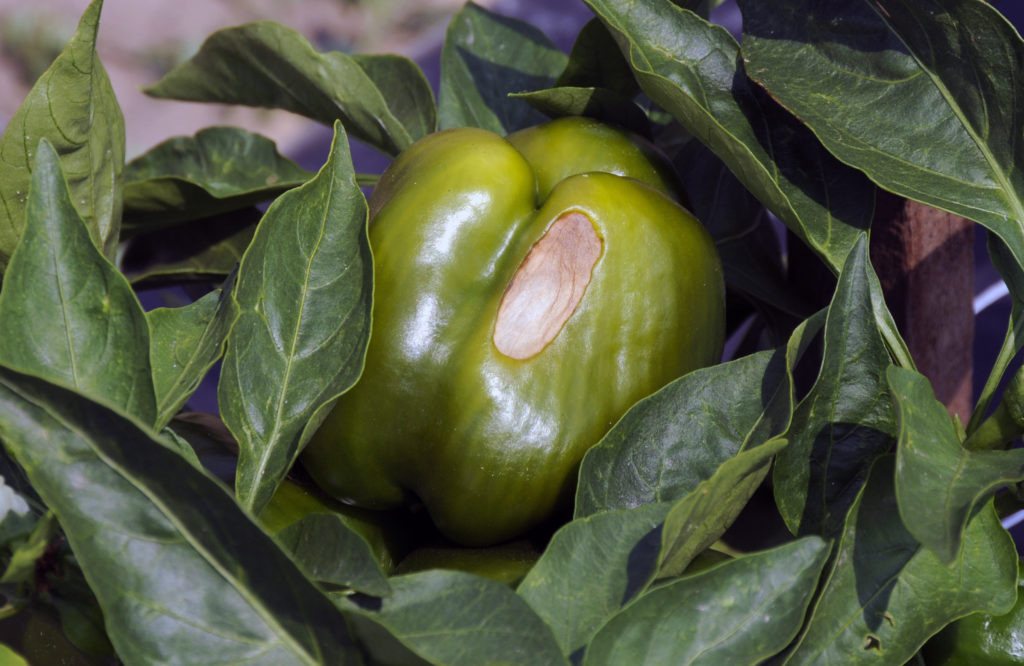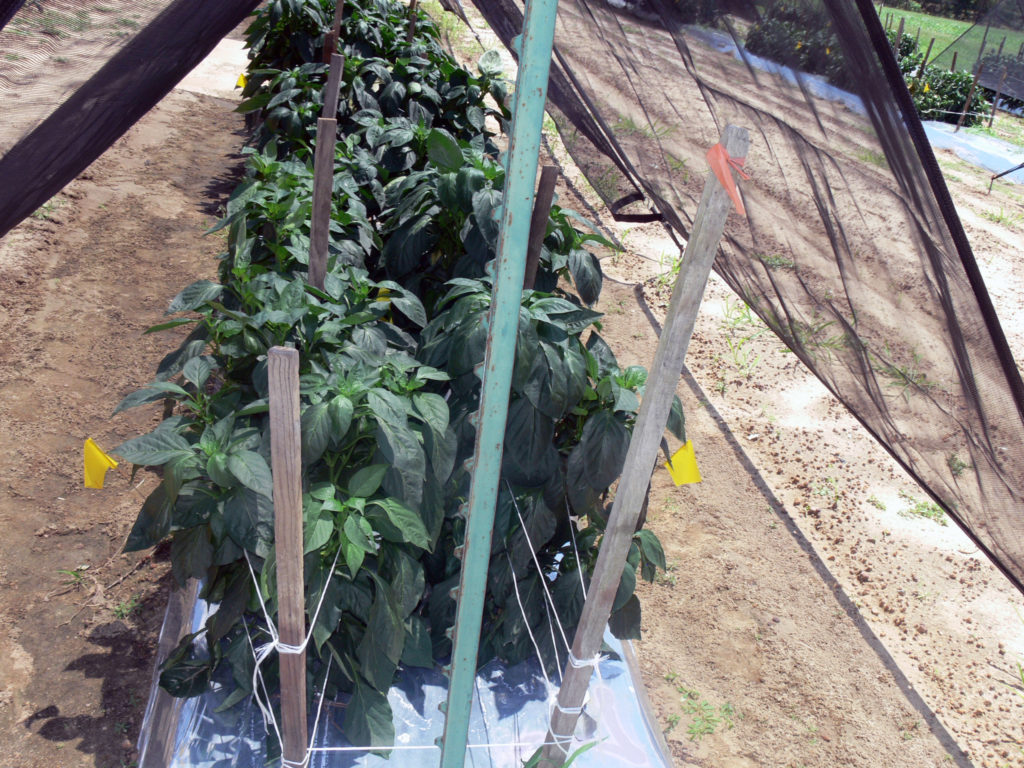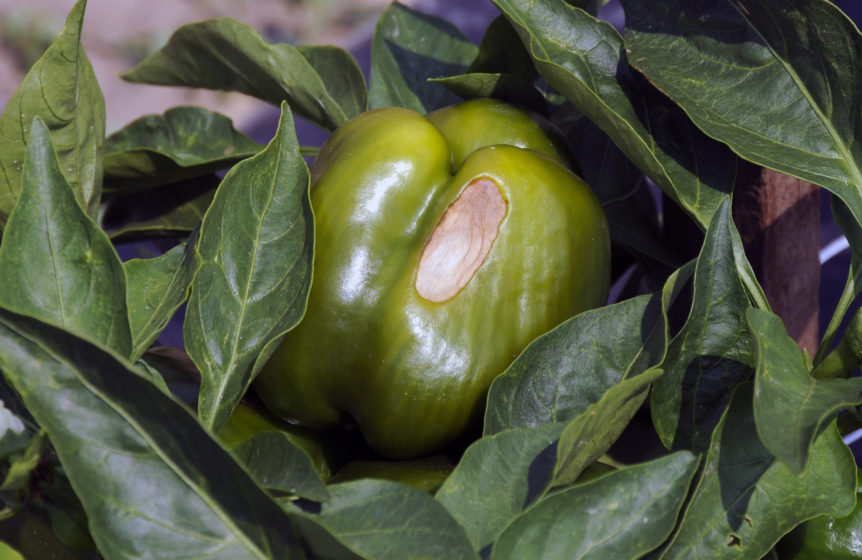
By Juan Carlos Díaz-Pérez
Climate change is increasingly impacting agriculture and our lives in general. Agricultural crop production, including organic vegetable production, faces growing challenges associated with heat and drought.

Temperature plays an essential role in plant development and function by determining the rate of biological activities. Each crop has a specific optimal temperature range. Cool-season crops (e.g., lettuce, broccoli, carrot and onion) are more sensitive to high temperatures than warm-season crops (e.g., tomato, pepper, watermelon and cucumber). Above the optimal temperature range, plant physiological activities are negatively impacted and may even result in plant death.
Under stress conditions, plants display physiological and morphological adjustments in response to adverse conditions. Growers must understand how climate change influences organic vegetable production and what tools are available to reduce such environmental impacts on crops.
High-Temperature Effects
Effects of high temperatures on crops include:
- Decreased seed germination and seedling growth
- Reduced plant growth, yield and quality
- Increased fruit physiological disorders such as blossom-end rot and sunscald on tomatoes, peppers and watermelons or bolting on onions and broccoli
- Reduced shelf-life of produce
Impact of high temperatures on plant physiology include:
- Reduced plant photosynthesis
- Altered enzyme activity and protein denaturation (breakdown)
- Increased cellular oxidative stress
- Increased drought stress in plants due to increased water loss via transpiration. Water-stressed plants have reduced photosynthesis.
- Imbalanced plant nutrition – Plant nutrient uptake is negatively affected by high soil temperatures and water-limiting conditions. There may be differences among nutrients in how they respond to temperature.
- Acceleration of vegetable deterioration and senescence after harvest – Rapid and effective cooling and storage of produce after harvest are essential.
Effects of high temperatures on pests and diseases include:
- Poor plant health – Weakened natural defenses make plants more susceptible to plant pathogens. Research in Tifton, Georgia, has shown that tomato plants under high soil temperatures have enhanced tomato spotted wilt disease.
- Enhanced development of insect pests and plant diseases caused by viruses, bacteria and fungi
Heat-Stress Strategies
Grafting vegetables can alleviate the negative impact of environmental stresses. Stress-tolerant rootstocks may be selected through breeding.
Conventional and molecular crop breeding can be used for heat resistance.
Protectants or biostimulants for seeds, seedlings and plants can be employed. Biostimulants are extracts from organic materials. Biostimulants can enhance plant growth and yield by promoting root growth and increasing nutrient and water uptake. Some crop biostimulants include fulvic and humic acids, seaweed extracts and chitosan.
Plastic mulches help mitigate high temperatures by modifying the crop microclimate. White and silver plastic mulches reflect a large portion of sunlight, thus removing some heat from the plants. Dark-colored plastic mulches, such as black or blue mulches, absorb abundant solar radiation, resulting in increased soil temperatures that benefit crops during low-temperature conditions. However, under black mulch, high soil temperatures under warm conditions may harm crops.
Shade cloth studies in Tifton show that shade net (30% to 40% shade factor) increases the marketable yield of field bell peppers by reducing the incidence of fruit sunscald, a physiological fruit disorder. Shade nets reduce the irradiation load on crops, ameliorating plant heat challenges.
Kaolin clay is sprayed on the crop foliage. It enhances the reflection of solar radiation by the crop canopy, leading to reduced heat load accumulation. Kaolin clay reduces leaf transpiration with no or minimal negative impact on photosynthesis.
Microbial inoculants research has evaluated the potential of utilizing microorganisms to alleviate heat challenges in crops. Microorganisms applied to the crop root zone may induce crop tolerance to heat and plant diseases.
Holistic, Coordinated Approach
Crop heat stress affects multiple aspects of the crop production system. Organic production practices, such as fertility, irrigation, plant disease and pest management, are usually better achieved using a holistic approach. Similarly, effective heat stress management requires a multidisciplinary, coordinated effort of horticulturists, plant physiologists, breeders, crop modelers, plant pathologists and entomologists. Before using any of the abovementioned tools, growers must ensure the product is accepted for organic production.
Juan Carlos Díaz-Pérez is a professor at the University of Georgia in Tifton.










